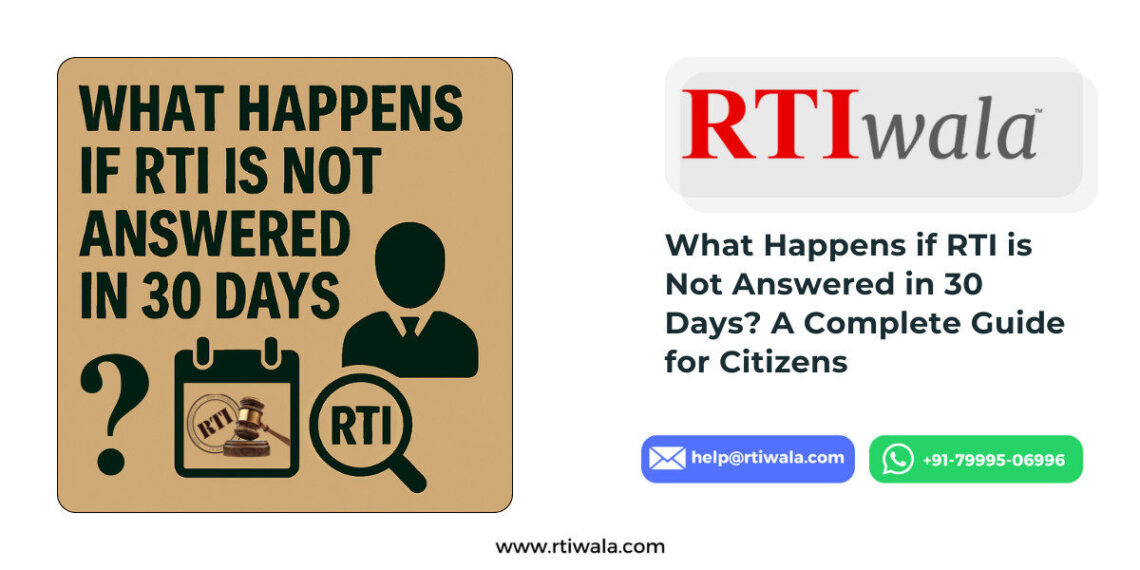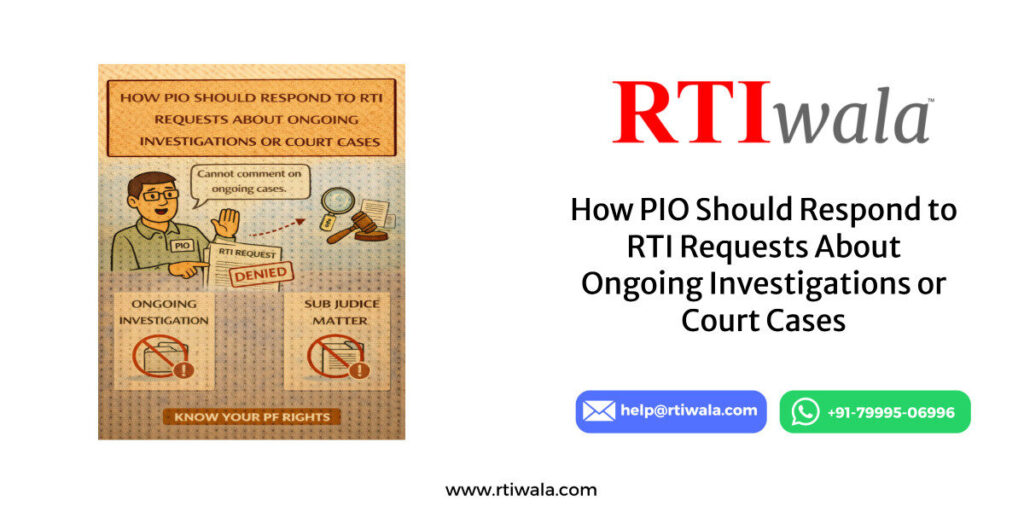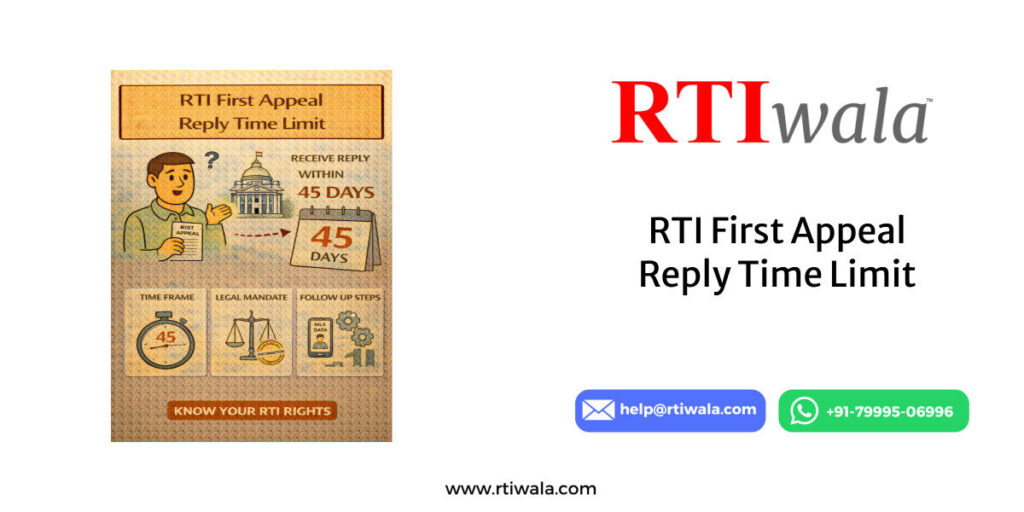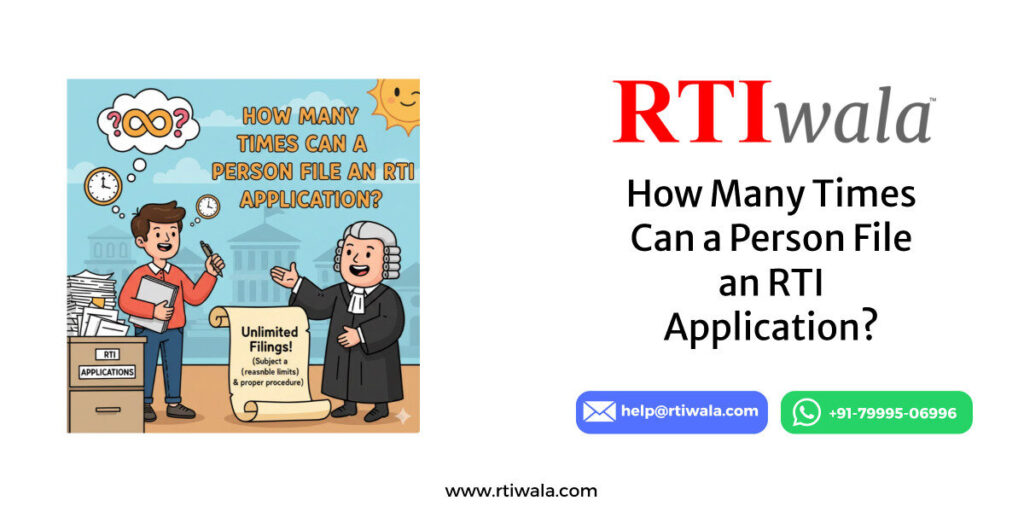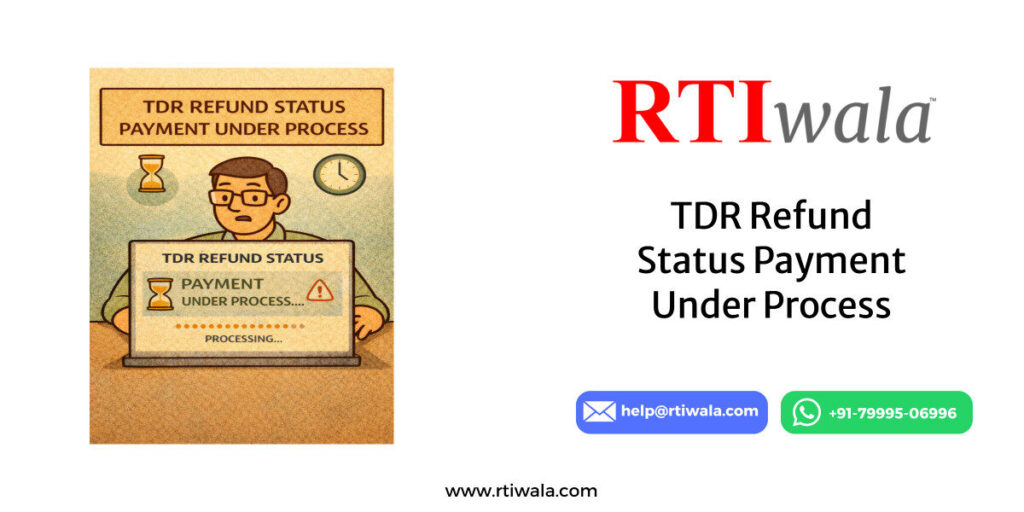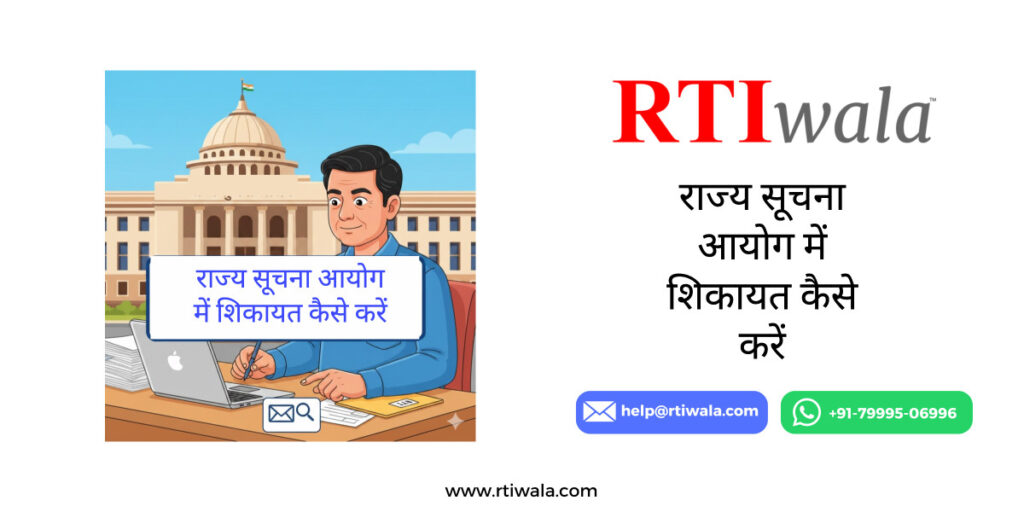Table of Contents
- Introduction: Why Timely RTI Reply Matters
- Legal Provision: 30 Days Timeline in RTI Act
- What Happens if RTI is Not Answered in 30 Days?
- Fear Factor: Risks of Ignoring RTI Delays
- Step-by-Step: How to File RTI Appeal After 30 Days
- Why Choose RTIwala for RTI Filing and Appeals
- Real-Life Examples of RTI Delay and Resolution
- FAQs on RTI Delays
- Conclusion: Protect Your Right with RTIwala
1. Introduction: Why Timely RTI Reply Matters
The Right to Information Act, 2005, was created to empower Indian citizens with access to government records and promote transparency. Once an RTI applicant files an RTI application, the law requires the concerned Public Information Officer (PIO) to respond within a fixed timeframe.
But the biggest frustration for citizens is silence. What happens if an RTI is not answered in 30 days?
Does your application lose value?
The answer is no—it actually becomes stronger.
With RTIwala, you don’t just file online RTI but also get expert support for appeals when your queries are ignored.
2. Legal Provision: 30 Days Timeline in RTI Act
As per Section 7(1) of the RTI Act, 2005:
- The PIO must respond within 30 calendar days of receiving the application.
- If the RTI is transferred to another department, +5 days are allowed.
- For urgent cases concerning life and liberty, the reply must come within 48 hours.
Failure to provide a reply in 30 days is treated as “deemed refusal.” This means the applicant can immediately file an appeal.
3. What Happens if RTI is Not Answered in 30 Days?
If your RTI is not answered in 30 days:
- It is legally considered a refusal of information.
- You gain the right to file a First Appeal before the higher authority.
- If that fails, you can approach the State or Central Information Commission through a Second Appeal.
- The PIO can be penalized up to ₹25,000 for delay or refusal.
Example: A citizen filed an RTI for pension details and got no reply. After filing an appeal, the Information Commission fined the PIO ₹5,000 and forced the department to release the information.
Silence doesn’t mean defeat; it means you can escalate legally.
4. Fear Factor: Risks of Ignoring RTI Delays
If you don’t act when your RTI is ignored:
- Your land or property records may be manipulated without your knowledge.
- Exam answer sheets or recruitment details may remain hidden.
- Police FIR status or investigation details may never come to light.
- Corruption in government contracts may continue unchecked.
Every year, thousands of RTI applicants lose their chance at justice because they don’t know how to file RTI appeals properly. Don’t be one of them.
5. Step-by-Step: How to File RTI Appeal After 30 Days
Step 1: Track the 30-Day Deadline
If no reply is received, it is deemed a refusal.
Step 2: File a First Appeal
Submit an appeal to the First Appellate Authority (FAA) within 30 days of the lapse.
Step 3: Draft Clearly
State that your RTI was ignored and cite Section 7(1) of the RTI Act.
Step 4: File a Second Appeal (if required)
If the First Appeal fails, approach the Information Commission.
Step 5: Utilize RTIwala for Smooth Filing
With RTIwala, you can file RTI online, get expert drafting, and ensure appeals are filed in the right authority, avoiding rejection.
6. Why Choose RTIwala for RTI Filing and Appeals
Filing RTI and appeals can be overwhelming. One mistake in drafting or authority selection can waste months. That’s why citizens prefer RTIwala:
- Custom Drafting – Applications written in strong legal format.
- Correct Authority Selection – Avoid rejections due to wrong PIO.
- Appeal Support – Help with First and Second Appeals.
- Confidential Filing – Your identity is protected in sensitive cases.
- Pan-India Service – From Delhi to remote villages, you can apply for RTI online anywhere.
Call: +91-7999-50-6996 now!
7. Real-Life Examples of RTI Delay and Resolution
- Student Case: A candidate didn’t receive his exam answer sheet until he filed an appeal with RTIwala’s help. The authority then released it within 20 days.
- Employee Pension: A retired worker was denied pension details. With appeal drafting, the commission fined the PIO and released the documents.
- Village Development Funds: RTI revealed funds were siphoned off, but only after an appeal when the first RTI was ignored.
These cases prove why timely action and professional support matter.
8. FAQs on RTI Delays
Q1. What happens if an RTI is not answered in 30 days?
It is treated as deemed refusal, and you can file an appeal.
Q2. Can the PIO be punished for not replying?
Yes, penalties up to ₹25,000 can be imposed.
Q3. How do I know how to file an RTI appeal?
RTIwala helps with expert drafting and filing of appeals.
Q4. Can I file RTI online for appeals?
Yes, with RTIwala you can file online RTI in India and track appeals.
Q5. How long does it take after filing a First Appeal?
The First Appellate Authority must reply within 30–45 days.
9. Conclusion: Protect Your Right with RTIwala
Not receiving a reply to your RTI application within 30 days is not the end—it’s a violation of your right. The law empowers you to appeal, seek penalties on the PIO, and get the information you deserve.
But remember: weak drafting and wrong filing often lead to rejection.
That’s why thousands of citizens trust RTIwala for filing RTIs online and pursuing appeals.
Call: +91-7999-50-6996 now!
Apply for RTI Online Today.












































